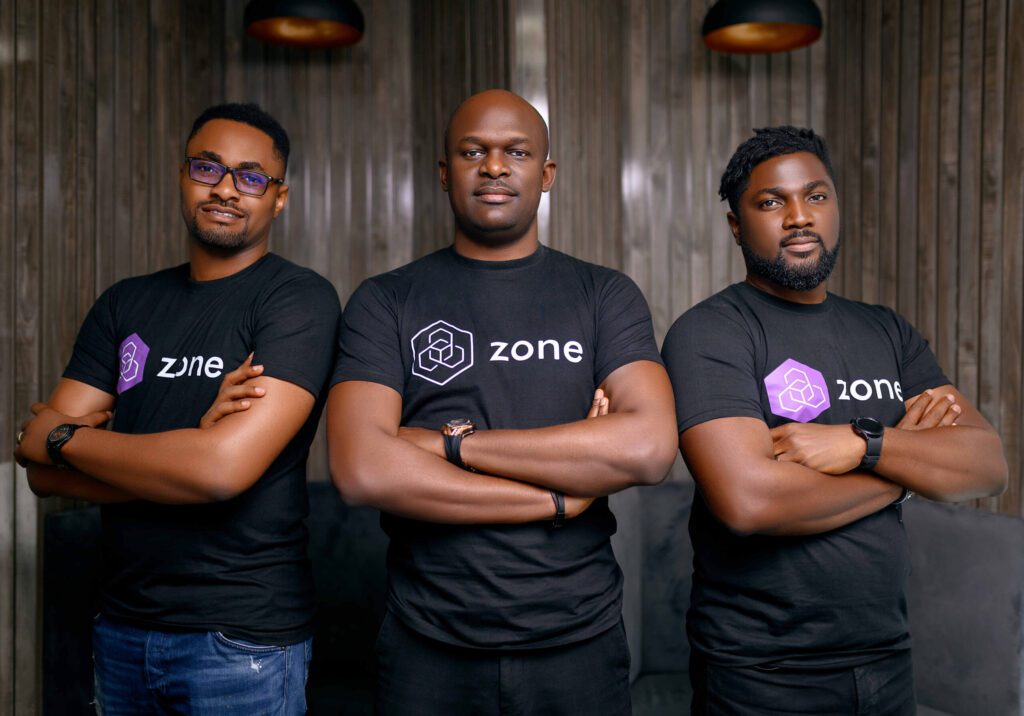-
Regulated blockchain ecosystem: Zone’s Nigerian network enforces compliance in real time via regulator-run nodes and AI screening.
-
Nigerian CBDC integration with Zone’s blockchain revives hopes for eNaira’s adoption through fiat-powered DeFi tools.
-
Tiered wallets and smart contracts automate compliance, reducing crypto fraud and human intervention risks.
Africa is at the epicentre of its Web3 journey, with most governments changing their outlook on digital assets.
Now more than ever, the concept of a regulated blockchain ecosystem is brimming, and the Zone, a trailblazer within Africa’s payments industry, has stepped forward to place Nigeria at the top.
Articulated by CEO Obi Emetarom, Zone envisions an Ethereum-like network where government regulators run validator nodes and enforce its evolving legal framework in real time while fees are paid in local fiat.
This initiative doesn’t just test the notion of an African-based blockchain network. Still, it can lead to the development of regulated DeFi solutions that promise enhanced trust for institutions, government bodies, and end users alike.
Building a Regulated Blockchain Ecosystem: Zone’s Vision for a Secure, Compliant Future in Digital Finance
The Foundation of Zone’s Proposal
According to the Zone’s proposal, a regulated blockchain ecosystem would involve the Central Bank of Nigeria having legal oversight over networks similar to Ethereum and Solana.
The model will enable the easy launch of tokens and the building of DeFi products while adhering to the CBN ruleset. Essentially, the initiative will address pain points by creating a hybrid model where compliance “is baked into the DNA” of the network.
It has led to the development of a blockchain where every transaction, smart contract, and token issuance is visible to regulators in real time. This ensures adherence to anti-money laundering (AML) and know-your-customer (KYC) protocols.
However, unlike Etherume, gas prices will be settled in the naira. This initiative provides several benefits, including the possibility of Nigerian CBDC integration, breathing life into a somewhat “failed” system.
This design curtails compliance’s traditional latency and complexity, where third-party entities often introduce delays or reconciliation hassles.
In addition, it exemplifies Zone’s existing regulated blockchain network, essentially providing a direct link between banks, governments and the users.
Why a Regulated Blockchain Infrastructure Matters
The notion of a regulated blockchain ecosystem offers a variety of solutions to the ongoing tension between innovation and oversight within Africa’s Web3 ecosystem.
Currently, blockchain solutions for cross-border payments are prevalent within Africa, with Zone being amongst the top, over traditional finance.
This essentially creates a shift where users of en opt for stablecoins rather than fiat currency, a red flag for governments.
Governments are currently working on developing DeFi compliance solutions and a regulatory framework to bridge this gap, but progress is slow.

Left to Rright, Zone co-founders: Elendu Uche, Obi Emetarom and Wale Onawunmi [Photo: Zone ]
This goes beyond just providing regulations and rejecting new concepts; it offers a third path where financial services are compliant by default.
How a Regulated Blockchain Would Function
Zone’s new idea would generally function like existing blockchain; Ethereum or Solana, but with a key difference: regulation.
According to their agenda, only approved organizations, like licensed entities and government regulators, will be granted access to build DApps, issue tokens or run validator nodes.
Furthermore, it would incorporate AI to screen the apps and tokens to ensure compliance with predefined rules like identity verification, anti-money laundering and consumer protections.
The ecosystem’s unique tangent involves the regulators as part of the system, running nodes, approving products and monitoring activity in real-time.
This feature ensures compliance is set by default, meaning every transaction, app and financial product is set in code.
CHECK OUT: Is Nigeria Web3 Ecosystem a Goldmine? $3B Stablecoin Data Reveals
Questions often arise about implementing Web3 factors, like who owns the data.
The regulated blockchain ecosystem would enable users to retain control over their wallet and assets, but tokens pegged to real money, like CBDCS, and every action falls under programmable rules.
Real-World Applications and Nigerian CBDC Integration
In practical terms, a regulated blockchain would function as a large, open-source network where regulators and approved participants could contribute and make compliant changes.
Zone envisions a future where various financial products—B2C payments, lending, investment, or insurance—could operate within this compliant environment.
In practical terms, a regulated blockchain would function as a large, open-source network, enabling various scenarios like Nigerian CBDC integration, government-backed DeFi projects and use cases for upcoming startups.
Zone envisions a future where Nigeria dominates Web3 in Africa by providing regulated DeFi products ranging from lending, investments or insurance.
Furthermore, it provides an ample environment to showcase how regulated blockchain prevents crypto fraud.
The immutable and compliant smart contracts are under screening from both the AI and governmental bodies, ensuring they are up to code.
In addition, tiered wallet hierarchies, seen in eNaira’s design limits transaction volumes for lower-verified accounts to curb abuse in high-fraud scenarios.
For lending purposes, the model combines automation, an element from DeFi, and finance’s safety structure from legacy systems.
Smart contracts would handle loan distribution, reducing the risk of human intervention.
Regulators and automated systems would screen the deployed smart contract, ensuring it adheres to Nigeria’s evolving crypto legal framework.
Toward a Golden Age of Compliant Innovation
While projects like Hyperledger, R3 Corda, and Quorum laid the groundwork for permissioned networks, Zone’s regulated blockchain ecosystem provides something more.
These initiatives have often stalled in pilot phases due to siloed implementation and limited interoperability; however, Zone’s approach to providing open-source and regulator-centric solutions can overcome some of these barriers.
While challenges persists, deploying robust DeFi compliance solutions won’t just increase digital adoption in Nigeria but empower It with the edge it neEds to dominate the space.
The fusion of code and law could refine how global finance operates, and Zone, in partnership with Nigeria, might just make it happen.

